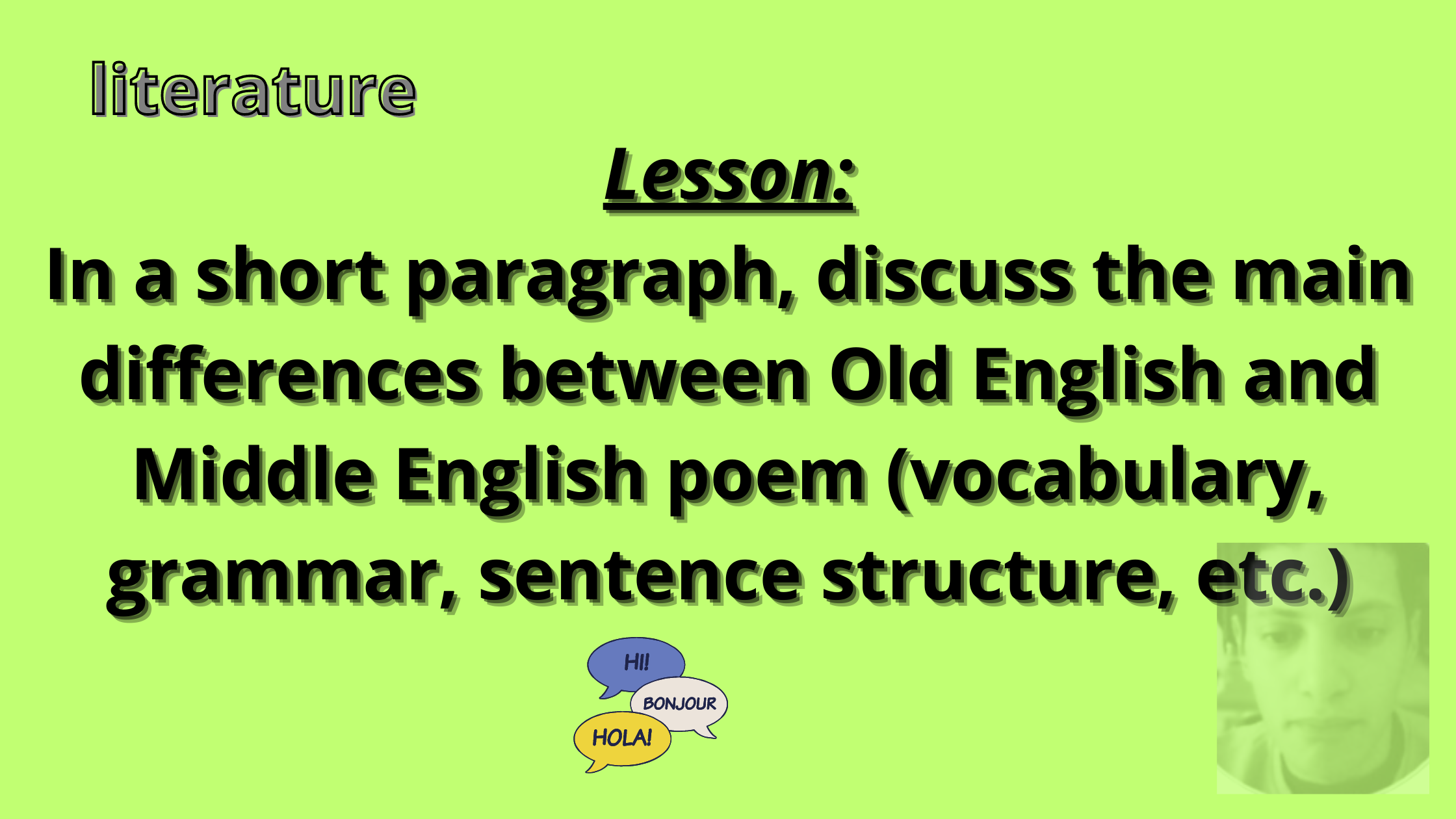1) Abstract
The English language can be divided into three main parts called Old English, Middle English and Modern English. Old English is the Anglo-Saxon language used from 400 to around 1100; Middle English was used from the 1100s to about 1400, and Modern English was the language used from the 1400s.
2) the main differences between Old English and Middle English poem (vocabulary, grammar, sentence structure, etc.)
Middle English poetry and Old English poetry are two distinct periods of English literature that differ in terms of language, style, and themes.
Middle English poetry is a broad term that encompasses a variety of genres such as religious poetry, lyric poetry, and epic poetry. The language used in Middle English poetry is the ancestor of modern English but is often difficult for modern readers to understand due to differences in vocabulary and grammar. Middle English poetry is known for its alliterative verse and the use of a caesura, or pause, in the middle of each line.
In terms of themes, Middle English poetry often dealt with religious and moral topics anther side the Old English heroic poetry celebrates ancient and contemporary warriors, but it also celebrates acts of self-sacrifice and the stories of brave women, and combines pagan and Christian values. Mike Bintley introduces some of the key texts of the genre, including Beowulf, The Battle of Maldon, The Dream of the Rood and Judith.
An important feature of Old English is its use of compounds. Sometimes these are combinations of two words in which one word modifies the other in some way, but often a compound may result from the combination of two words which mean more or less the same thing. These poetic compounds are useful to an alliterative poet who is often in the position of needing many different words to express the same thing, and compounds also help to fulfill the metrical requirements of Old English verse.
Formulaic phrases and clusters of elements sometimes referred to as formulaic themes can also characterize Old English poetry. In the elegiac poems we will be reading in class, the treatment of winter is a theme, as is the ubi sunt motif.
In summary, while both Middle English poetry and Old English poetry are important periods in English literature, they differ in terms of language, style, and themes. Middle English poetry is known for its alliterative verse and religious themes.

Old English vs. Middle English Poems: A Comparison
Old English and Middle English are two distinct periods in the history of the English language, and the poems of each era reflect the linguistic and cultural changes that occurred during those times.
Old English, also known as Anglo-Saxon, was spoken from the 5th century until the Norman Conquest in 1066. The poetry of this era is characterized by its use of alliteration, a poetic technique that involves the repetition of consonant sounds at the beginning of words. Old English poems also tend to be long and complex, with intricate sentence structures and a vocabulary that is often difficult for modern readers to understand.
Middle English, on the other hand, emerged after the Norman Conquest and was spoken from the 11th century until the 15th century. The poetry of this era is characterized by its use of rhyme and meter, which were introduced by the French and Italian influences on the English language. Middle English poems are often shorter and more accessible than Old English poems, with a simpler sentence structure and a vocabulary that is closer to modern English.
Overall, the main differences between Old English and Middle English poems lie in their use of poetic techniques, vocabulary, grammar, and sentence structure. While Old English poems are known for their use of alliteration and complex sentence structures, Middle English poems are characterized by their use of rhyme and meter and a simpler, more accessible vocabulary.






